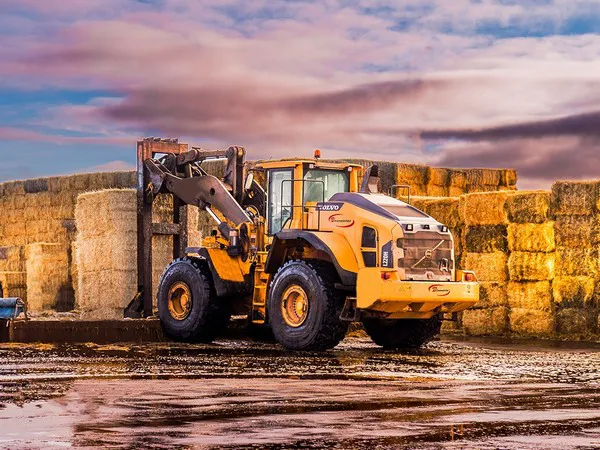One of the consequences of the drought that affects areas in practically all of Spain is the shortage of straw, which is leading to a large increase in straw prices. This increase in prices enormously complicates maintaining mushroom production, which depends on straw for the preparation of compost, stated Elias Olmeda, the president of the Champinter cooperative in Albacete.
The straw in Spain is used to feed livestock, in the production of mushrooms, and to generate biomass for renewable energy, Olmeda stated.

The president of Champinter (one of the main producers of mushrooms in Spain) also said that, since many of the renewable energy projects are subsidized by the different administrations, their access to straw is more viable than for mushroom producers or livestock farmers.
"In the end the straw will not reach either the farmer or the mushroom producers, or it will do so at very high prices,” he stated.
"Some countries in Europe have already stopped producing mushrooms due to lack of compost," he added.
This situation is due to several circumstances, Olmeda stated, such as the drought, the war in Ukraine, and the increase in fuel and energy prices, mainly gas prices, which has led to an increase in the use of more by-products (such as straw) for the generation of renewable energies. In addition, Middle Eastern countries are purchasing more straw to feed their animals.
Another factor is that transporting straw has become easier, as it is currently pressed and thousands of tons can be transported by sea.
According to Olmeda, the sector faces another threat: the new regulations that prohibit and reduce the use of plastics, which will mean that manufacturers of this type of packaging will probably use straw to make their cardboard packaging, as straw contains cellulose and is valid for this type of packaging.
In addition, most modern harvesters chop the straw in smaller sizes, which is another problem, as it reduces the product for the market.
“We are heading towards a shortage of straw, with the consequent problem for livestock farmers and producers who use compost, such as the mushroom sector,” the president of Champinter stated.
The government must urgently address this possible 'straw war', he added.
For more information:
SC Champinter
Ctra. Cenizate, 1. 02270. Villamalea. Albacete (España)
